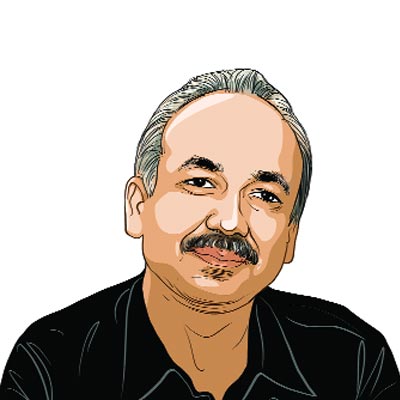Opinion Unnecessary drift
Nepals president and PM may be on a collision course
Despite tall claims by key political parties in Nepal that they are very close to completing the peace and constitution-writing process,there still lingers disbelief within the ruling coalition. A fresh rift between President Ram Baran Yadav and Prime Minister Baburam Bhattarai over their jurisdiction has again polarised the political parties,barely weeks after they vowed that they would adopt a consensual approach on the twin issues.
There is a conspiracy afoot to have the term of the elected constituent assembly lapse next month and hand over the entire executive power to the president, said Minister for Culture Gopal Kiranti at a public meeting recently. Kiranti,a Maoist leader,did not elaborate,nor did he present the basis of his prediction,but subsequent developments have brought the president and the prime minister more firmly on a collision course.
The president is said to be upset over a cabinet recommendation that he pardon a Maoist legislator convicted by the supreme court in a murder case. Legislator Balakrishna Dhungel was awarded life term along with confiscation of his property by the apex court last year,but given the clout the Unified Communist Party of Nepal-Maoists (UCPN-M) enjoys,he is still out of the reach of the law. But once Bhattarai became the prime minister in August,he moved fast to have him exonerated using the presidents power expected to be used sparingly to bail out his camp follower within a divided party. In fact,this is the second time the prime ministers personal image has suffered in so many months. Last month,he stood firm in the defence of another minister and Maoist leader,Prabhu Shah,wanted in a murder case,but Bhattarai axed him as public fury mounted.
These are not isolated incidents,and Bhattarai is fast giving the impression of being a leader who privileges populism over the promised consensual politics to complete the peace and constitution-writing process. The optimism seen last week when major parties came together on defining principles for the integration of Maoist combatants in the Nepal army and rehabilitating the rest along with the time-bound implementation of key past agreements is simply fading away. New differences among the coalition partners have cropped up. This is unacceptable,and the rule of law must prevail, says Congress central committee member Arjun Narsingh K.C. The student wing of the Communist Party of Nepal-Unified Marxist Leninist (CPN-UML) paraded through the main thoroughfares of the capital against the government decision.
We are democrats,and we are not going to accept communism, Deputy Prime Minister and United Democratic Madhesi front (UDMF) leader Bijay Gachhadar said in a reception speech to a delegation of Indian journalists. He also dropped hints that he was not happy with the recommendation to annul the murder conviction of Dhungel.
In yet another bizarre case,UDMF leader and Minister Jaya Prakash Gupta faces a hearing in the supreme court in a corruption case while the government attorney general argues against him.
The compulsions of coalition politics include compromises,but the attempt to exonerate Dhungel was more an act of brazenness on the part of the prime minister. The worst may be yet to come,as the president seems to have made up his mind not to sign on the dotted line. Apparently,the prime minister,accompanied by the attorney general a Maoist activist had met the president last week to build a case for withdrawal of the case against Dhungel. The prime minister sent the recommendation formally overruling the presidents hesitation.
Incidentally,a stand-off between the president and the prime minister had come in the public gaze in early May 2009,at a time when Prachanda was the PM. He sacked the army chief,Rookmangud Katawal,despite warnings from other parties and the presidents reservations,and his refusal to sign on the dotted line provoked Prachanda to resign in protest. Bhattarai,in the present context,has only two options: either to retreat or confront the president,come what may.
All this,when the prime minister has less than a fortnight to fulfil his ambitious promise to return the property that his party cadres seized from ordinary people during the insurgency and transform the militant Young Communist League into a civilian outfit. Failure to achieve these goals by November 23 will make it difficult,if not impossible,to have the tenure of the House extended yet again beyond November 30 ostensibly to deliver the new constitution.
yubaraj.ghimire@expressindia.com


